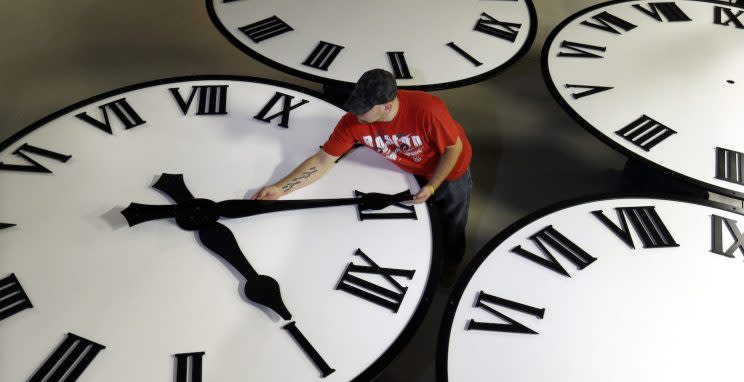Alberta considers dropping daylight saving time

Time is of the essence in a debate over daylight saving time in Alberta, where the elimination of the century-old custom of adjusting our clocks by an hour twice a year is being discussed.
“Overwhelmingly, people are ready to stop changing their clocks,” Edmonton MLA Thomas Dang told Macleans. The 21-year-old New Democrat has been working on a plan to eliminate the time change, a move that would allow Albertans to keep their one hour of sleep on March 12, which would otherwise be lost.
The issue surrounding the time change is not so much a matter of when, but how. If the province chooses to eliminate the time change, they must then choose between Mountain Time, which aligns them with British Columbia, or commit to Central Time, which allows them to join their Prairie neighbour, Saskatchewan. Each has its own benefits.
Mountain Time would allow for sunnier mornings in a province that wakes up earlier than the rest of the country, a Calgary economist told CBC News. Central Time would mean later sunsets, giving children more time after school for outdoor activities and sporting events.
Dang told Macleans that some Albertans are thinking with their hearts instead of their heads when it comes to choosing a time zone “because there is some sort of attachment to the mountains.”
There is also an economic perspective to take into account. Daylight saving time was implemented as an energy-saving mechanism, but Alberta is an outlier that actually consumes more energy during daylight saving.
“When we’re on daylight saving, we increase our electricity use here in Alberta,” Blake Shaffer, a University of Calgary PhD candidate and C.D. Howe Institute fellow, revealed to CBC’s Calgary Eyeopener.
In comparison, Ontario uses 1.5 per cent less electricity between winding back and springing forward.
“I took a look at what daylight saving time does in Alberta, and, lo and behold, it’s the opposite effect,” Shaffer said.
The economist says the increase in energy consumption is because of how early the province wakes up.
“We get up around 20 minutes earlier than our Torontonian counterparts. And to add to that, the sun rises later.”
Speaking of early risers, some Albertan farmers say they are also on board with eliminating daylight saving time.
Dairy farmer Conrad Van Hierden says the time change is hard on him, but even harder on his herd of cows.
“Cows are very habitual animals, they get into their routines, and when you change anything in their schedule, it’s an adjustment,” he explained to CBC’s Calgary Eyeopener. “They’re used to getting up and going to the barn at a certain time of day. When they have to hold their milk for an extra whole hour when we do the time change, it’s hard on them.”
Van Hierden says he must make adjustments in his schedule to make life easier for his animals, changing the time slowly with 15-minute increments over a course of four days.
“They’ll be in the barn waiting and they’ll be mooing at you and saying, ‘come on, we want to get milked,'” he said. “Once they’re full, they’re full, and they want to get milked.”
But not everyone wants to see daylight saving eliminated, including the two men who fought to bring it to the province.
From 1967 to 1971, Bill Creighton and David Matthews worked to get Albertans to accept resetting their clocks twice a year. The sports enthusiasts from Calgary argue that the added daylight allows for much needed time outdoors.
“There must be some benefit to it or it wouldn’t have lasted in North America for 70-plus years,” Creighton told the Edmonton Journal.
If Alberta decided to stop observing daylight saving time, it wouldn’t be alone. Macleans says parts of Quebec, Ontario, British Columbia and Nunavut have opted out of the tradition, while the entire province of Saskatchewan sticks to their time throughout the year.


